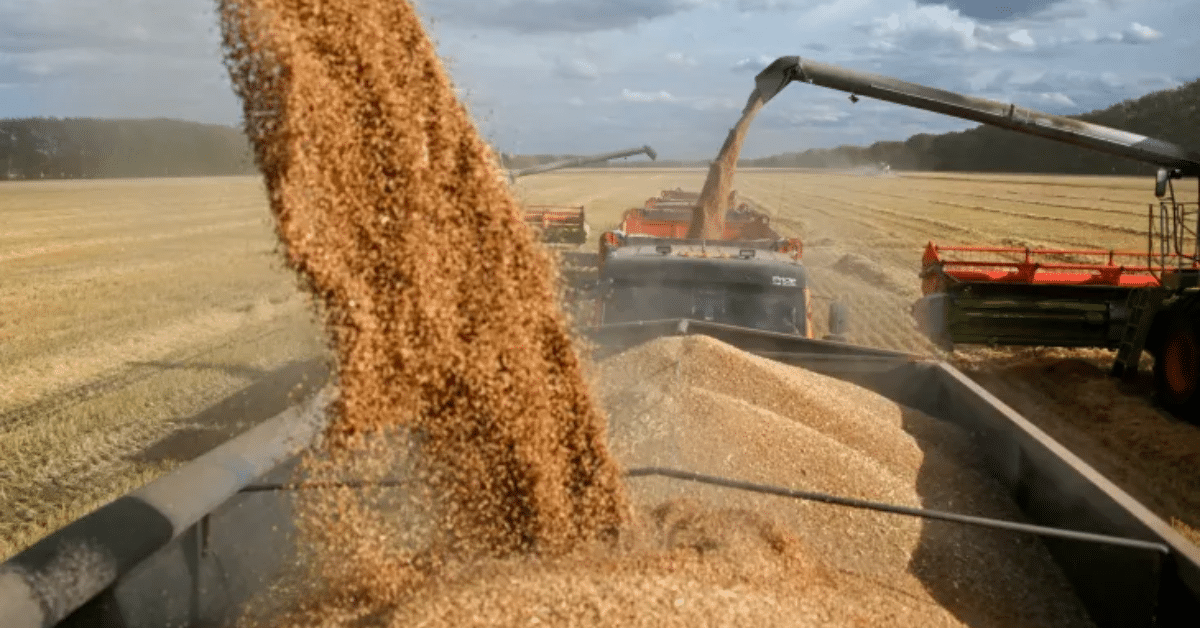Key Takeaways
- Russia’s Agriculture Bank may soon accept crypto payments for settling grain exports.
- International sanctions and a SWIFT ban have pushed the country to consider blockchain-based settlement tools.
- The latest move has the potential to reshape the world’s commodity trade, considering Russia produces over 49.5 metric tons of grain.
The Agricultural Bank of Russia could soon accept crypto settlements for grain exports as an alternative payment system, signaling a bold step in the country’s plan to sidestep Western sanctions and modernize its trade infrastructure.
According to a press release by the bank, the Russian Agricultural Bans stated it was working in partnership with the Bank of Russia to assess the possibility of using digital assets to facilitate the 49.5 metric ton grain trade.
Crypto: A Convenient Alternative Instrument
Russia has faced mounting international sanctions following its invasion of Ukraine, which have blocked its financial systems, and the country is now left at a crossroads on how to settle payments for its grain exports. If successful, the decision to accept crypto settlements for grain exports will be a serious workaround for one of the world’s largest wheat exporters. Speaking at the Russian Grain Forum in Sochi, where over 1,000 participants were present, the bank’s First Deputy CEO, Irina Zhachkina, confirmed:
“We believe cryptocurrencies can be a convenient alternative instrument, and at the moment, we, together with the Bank of Russia and all the stakeholders, are considering the opportunity of using cryptocurrency tools for payments in grain trading.”
Forced To Look For Alternative Payment Systems
Since 2022, the Agricultural Bank has been unable to use the SWIFT system besides having its assets frozen by the European Union and losing access to the most basic financial services across the European continent. With mounting pressure, the bank has now turned to crypto as its only potential lifeline, as the effects of the sanctions have spread further than the financial system. Word from Russia’s Central Bank has it that over 79 Russian ships loaded with grain cannot be allowed to enter European ports after being denied routine services.
In such a scenario, the government has been forced to seek alternative payment systems, and crypto settlements for grain exports may be the only remaining option, as traditional payment systems are not entirely out of reach. The country now plans to apply crypto settlements at a time when it intends to export over 49.5 million tons of grain, including 42 million tons of wheat, in the upcoming harvest.
Conclusion
While the Agricultural Bank of Russia may still be considering the feasibility of implementing crypto settlements for grain exports, there is abundant evidence that the momentum is building. Russia is preparing for any eventuality, including tougher sanctions, as it now views crypto as part of its solution. The shift from traditional payment systems to cryptocurrency may prompt countries to reassess how they implement sanctions in the future, particularly if other affected countries opt for the crypto route to circumvent economic sanctions.
Frequently Asked Questions
Is crypto allowed in Russia?
Yes, crypto is legal in Russia, but it cannot be used for payments inside the country—only for investment and cross-border trade.
How much tax will I pay on crypto in Russia?
Crypto profits are taxed at a 13% rate for residents and 15% for high earners or non-residents, similar to other capital gains.
Does crypto have a chance to reshape global commodity trading?
Yes, if Russia’s crypto grain trades succeed, it could legitimize blockchain-based settlement in high-volume global trade.























